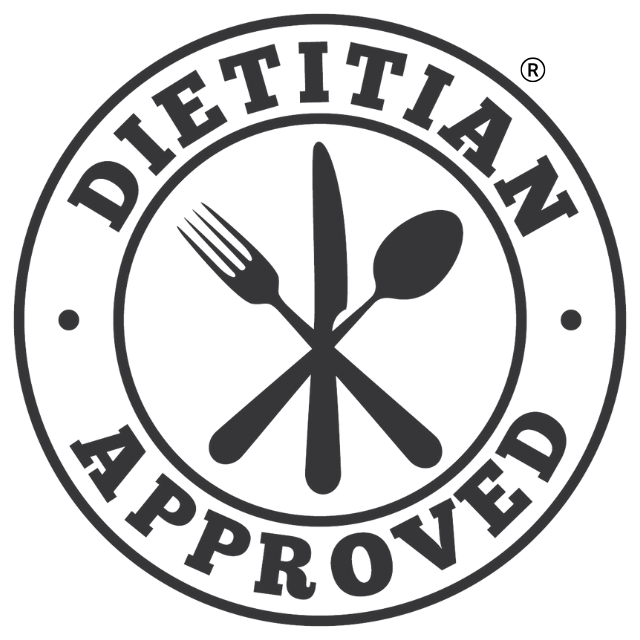
Nutrition to help you through Perimenopause
Feb 09, 2022Nutrition to help you through Perimenopause
Do you experience hot flushes, night sweats, a rollercoaster of moods and changing periods? You may be in Perimenopause. Often described as the roller coaster shit show heading towards Menopause, Perimenopause can start from as young as 35 in some people.
But what can we do to manage Perimenopause from a nutrition perspective?
What is Perimenopause?
- It is a natural aging process
- It is the point in a women's life leading up to her final period
- This typically happens around mid-40s, however, can vary between individuals and start as young as 35
What happens to the body during Perimenopause?
- There is a decline in the female sex hormones; oestrogen and progesterone
- The decline in these hormones is not linear
- In general, between the age of 35 to 50, there will be about a 35% reduction in estrogen and a 75% reduction in progesterone over about a 5-10 year period
What are the symptoms of Perimenopause?
(All women experience it quite differently)
- Changes in cognition
- Brain fog, headaches, migraines, forgetfulness
- Changes in mood
- Anxiety, depression, mood swings, irritability
- This is particularly affected when estrogen is lowered quite significantly
- Changes in menstrual cycle
- Hot flushes
- This can lead to an impairment in temperature regulation
- Night sweats
- This may be because of progesterone dropping at a faster rate than estrogen
- Disturbance in sleep
- Vaginal dryness
- Painful intercourse
- Increase in belly fat
How to look out for these symptoms
- Track your menstrual cycle to see if there is any change in what would be normal for you
- Track the time between bleeds
- Can also look out for the heaviness of the bleeds
- Check for the levels of pain
(these may be heightened due to higher estrogen to progesterone ratio)
- Get a panel of blood work to identify where your hormones usually sit
- This is helpful to get done before perimenopause
- This is helpful to get done before perimenopause
Is there a definitive start or endpoint of perimenopause?
- Unfortunately, there is no defined start point
- The endpoint would be termed menopause
- Hard to define this phase through a full blood panel, as hormones are changing all the time
- This can be influenced by stress
- This is why it may be useful to get blood work early on as a comparison
What are some nutritional strategies to help us through Perimenopause?
- Increasing hydration is crucial to combat the increase in core temperature, hot flushes etc.
- Be conscious of drinking more water
- Aim for fluids that contain electrolytes, particularly around training sessions
- This is also important due to increased sweat from hot flushes
- Aim for cooling beverages e.g. iced slushies, water with ice, ice latte instead of hot coffee
- Menthol to help with the heat
- Glycerol to increase hydration
- Sodium loading to increase water retention
- Aim for foods with a slight estrogenic effect
- Soy bean, tofu, tempeh, edamame
- These can help provide an element of alleviation when it comes to the hot flushes
- Lignans
- Found in flaxseeds
- These can help reduce hot flushes
- Fibre
- This can help clear excess estrogen, which may help with symptoms caused by an imbalance in the estrogen to progesterone ratio
- Unsaturated fatty acids (particularly omega-3s)
- These can help with cognition, and reduce inflammation
- Sources of these are fatty fish, flaxseed, chia seeds, walnuts
- Can also consider supplementing with fish oil or algae oil
- Calcium
- As estrogen lowers, the importance of calcium intake increases
- Antioxidants
- Colourful fruit & veg
- Cruciferous vegetables e.g. broccoli, Brussel sprouts, cabbage, cauliflower, kale
- The phytochemicals present can help reduce breast cancer risk, which is of concern from an increased estrogen to progesterone ratio
- Tart cherry concentrate
- This can help with sleep and temperature regulation
- Add 30mL into 100mL water prior to bed
Strategies to help manage hot flushes and night sweats
- Immerse yourself in cooler environments, particularly for training
- This may mean changing the time of the day you train
- Cold showers/ice baths - this is great for recovery to promote blood flow to the skin
- Pick clothing that might not make you more prone to the heat
To go deeper, listen to the Triathlon Nutrition Podcast Episode 26: Nutrition to help you through Perimenopause & Menopause – Part 1 with Angie Clarke
Don't miss a beat!
New moves, motivation, and classes delivered to your inbox.
We hate SPAM. We will never sell your information, for any reason.

